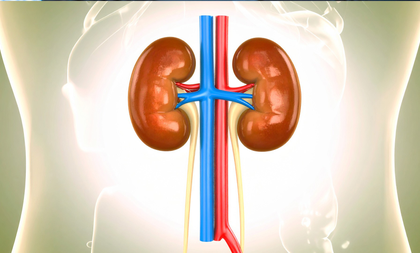Young night shift workers more at risk of developing kidney stones: Study
By IANS | Updated: October 1, 2025 11:50 IST2025-10-01T11:48:41+5:302025-10-01T11:50:21+5:30
New Delhi, Oct 1 Young night shift workers are more at risk of developing kidney stones, according to ...

Young night shift workers more at risk of developing kidney stones: Study
New Delhi, Oct 1 Young night shift workers are more at risk of developing kidney stones, according to a study.
The findings, published in the journal Mayo Clinic Proceedings, showed that the shift workers have a 15 per cent higher risk of developing kidney stones, especially younger workers and those with low levels of manual labour.
Body mass index (BMI), fluid intake, and other lifestyle factors play key roles in the occurrence of kidney stones.
Long-term shift work, characterised by an irregular work schedule outside conventional daytime work hours, particularly night shift work, can disrupt workers' circadian rhythms, impact metabolism and hormone secretion, alter lifestyles, and lead to adverse health outcomes.
"We found that shift work is associated with a higher risk of kidney stone events; an association that is partially mediated by several lifestyle factors, including smoking, sleep, fluid intake, and BMI," said lead investigator Yin Yang, Department of Epidemiology, Sun Yat-sen University in China.
Using data from over 220,000 participants, the researchers in the current study analysed the association between shift work, including its type, frequency, and duration, and kidney stone events over a median follow-up period of 13.7 years.
Kidney stone disease is a common and preventable urological disease, with an estimated prevalence ranging from 1 per cent to 13 per cent in different regions across the world. It has been associated with an elevated risk of cardiovascular diseases, chronic kidney disease, and renal failure, all of which impose a substantial long-term disease burden.
Kidney stone formation is influenced by several intrinsic and extrinsic factors, including genetics, dietary characteristics, physical activity, BMI, and other lifestyle behaviours.
In an accompanying editorial, Felix Knauf, from the Division of Nephrology and Hypertension, Mayo Clinic, US, pointed out that the highest risk for kidney stones occurred in individuals involved with night shift work.
"A central effect of shift work is the disruption of circadian rhythms. Homeostasis and health are underpinned by physiologic systems, virtually all of which are governed by the biologic clock that dictates the periodicity, tempo, and physiologic effects of circadian rhythms,” Knauf said.
Disclaimer: This post has been auto-published from an agency feed without any modifications to the text and has not been reviewed by an editor
Open in app